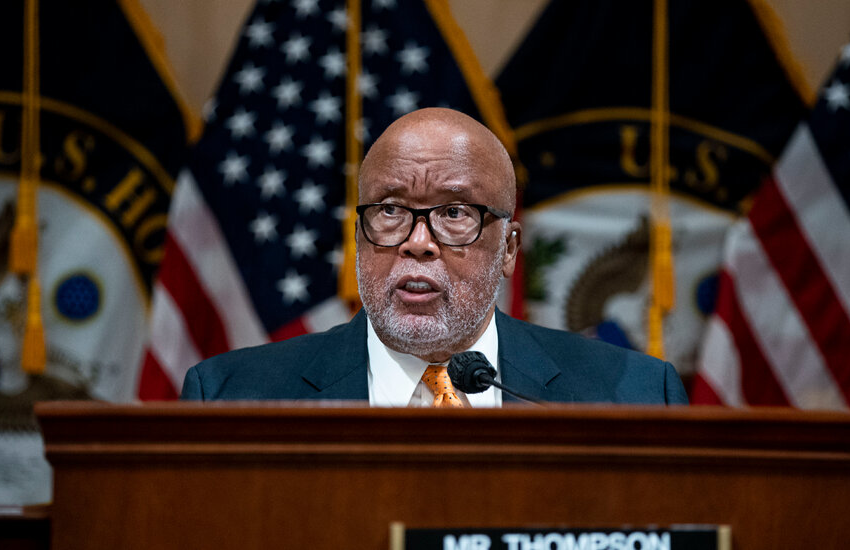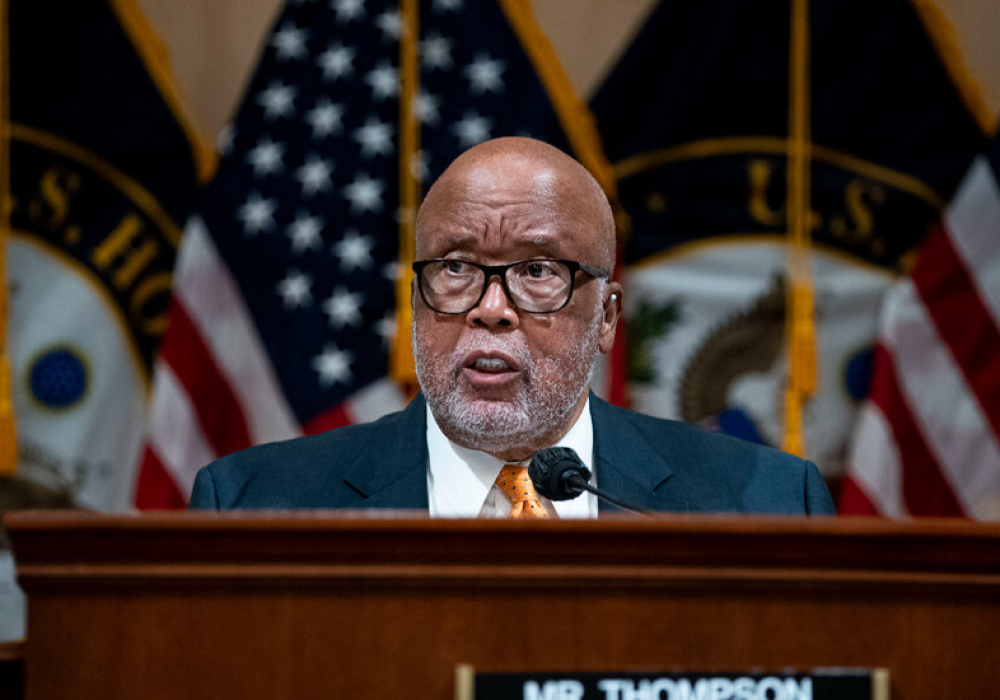WASHINGTON — The House committee investigating the Jan. 6 attack on the Capitol issued six new subpoenas on Friday, digging deeper into the rallies that preceded the mob violence and organizers’ meetings with President Donald J. Trump.
Those issued subpoenas Friday included Robert “Bobby” Peede Jr., a former director of the White House advance team and Max Miller, a former Trump White House aide, who both met with Mr. Trump in his private dining room by the Oval Office on Jan. 4 to discuss the rally planned for two days later at the Ellipse, a park just south of the White House; and Brian Jack, Mr. Trump’s former political affairs director who reached out to several members of Congress to ask them to speak at the Jan. 6 rally. (Mr. Jack is currently the political director for Representative Kevin McCarthy of California, the Republican leader.)
Representative Mo Brooks, Republican of Alabama, accepted Mr. Jack’s invitation, the committee said. At the rally, Mr. Brooks wore body armor onstage as he told the crowd to “start taking down names and kicking ass.”
“Some of the witnesses we subpoenaed today apparently worked to stage the rallies on Jan. 5 and 6, and some appeared to have had direct communication with the former president regarding the rally at the Ellipse directly preceding the attack on the U.S. Capitol,” Representative Bennie Thompson, Democrat of Mississippi and the chairman of the committee, said in a statement. “The select committee expects these witnesses to join the hundreds of individuals who have already cooperated with our investigation as we work to provide the American people with answers about what happened on Jan. 6 and ensure nothing like that day ever happens again.”
The committee also issued subpoenas for Bryan Lewis, who obtained a permit for a rally outside the Capitol on Jan. 6 to “urge Congress to nullify electoral votes from states that made illegal changes to voting rules during their elections”; and Ed Martin, an organizer of the Stop the Steal movement who the committee said was involved in the planning and financing of the rally immediately before the attack.
Understand the U.S. Capitol Riot
On Jan. 6, 2021, a pro-Trump mob stormed the Capitol.
The committee said Mr. Martin worked closely with Ali Alexander, a prominent organizer of Stop the Steal rallies around the country who has ties to far-right members of Congress. Mr. Alexander is cooperating with committee, delivering a trove of documents that could shed light on the activities preceding the attack. At Stop the Steal events in the weeks leading up to Jan. 6, he repeatedly referred to the possible use of violence to achieve his organization’s goals, including leading a crowd in Washington on Jan. 5 in a chant of “victory or death.” He claimed to have been in communication with the White House and members of Congress about events planned to undermine Congress’s official count of the Electoral College results.
The panel also issued a subpoena to Kimberly Fletcher and her organization, Moms for America, which helped organize a Jan. 5 rally at Freedom Plaza and the Jan. 6 rally at the Ellipse supporting Mr. Trump’s false allegations of election fraud.
The subpoenas call for the witnesses to produce documents this month and to sit for depositions in January.
Mr. Miller, who is now running for Congress in Ohio, said he would accept the subpoena, but that he would vote to disband the committee if he was elected next year.
“Upon taking office, I will make sure one of my first votes is to disband this partisan committee that has weaponized its powers against innocent Americans. Ohioans are tired of watching D.C.’s witch hunts and political theater while the country burns,” he wrote on Twitter. “Sadly, it’s the only card the Democrats can play, because their policies are destroying our nation.”
Understand the Claim of Executive Privilege in the Jan. 6. Inquiry
A key issue yet untested. Donald Trump’s power as former president to keep information from his White House secret has become a central issue in the House’s investigation of the Jan. 6 Capitol riot. Amid an attempt by Mr. Trump to keep personal records secret and the indictment of Stephen K. Bannon for contempt of Congress, here’s a breakdown of executive privilege:
What is executive privilege? It is a power claimed by presidents under the Constitution to prevent the other two branches of government from gaining access to certain internal executive branch information, especially confidential communications involving the president or among his top aides.
What is Trump’s claim? Former President Trump has filed a lawsuit seeking to block the disclosure of White House files related to his actions and communications surrounding the Jan. 6 Capitol riot. He argues that these matters must remain a secret as a matter of executive privilege.
Is Trump’s privilege claim valid? The constitutional line between a president’s secrecy powers and Congress’s investigative authority is hazy. Though a judge rejected Mr. Trump’s bid to keep his papers secret, it is likely that the case will ultimately be resolved by the Supreme Court.
Is executive privilege an absolute power? No. Even a legitimate claim of executive privilege may not always prevail in court. During the Watergate scandal in 1974, the Supreme Court upheld an order requiring President Richard M. Nixon to turn over his Oval Office tapes.
May ex-presidents invoke executive privilege? Yes, but courts may view their claims with less deference than those of current presidents. In 1977, the Supreme Court said Nixon could make a claim of executive privilege even though he was out of office, though the court ultimately ruled against him in the case.
Is Steve Bannon covered by executive privilege? This is unclear. Mr. Bannon’s case could raise the novel legal question of whether or how far a claim of executive privilege may extend to communications between a president and an informal adviser outside of the government.
What is contempt of Congress? It is a sanction imposed on people who defy congressional subpoenas. Congress can refer contempt citations to the Justice Department and ask for criminal charges. Mr. Bannon has been indicted on contempt charges for refusing to comply with a subpoena that seeks documents and testimony.
The committee has already interviewed nearly 300 witnesses, including four on Thursday, but has voted twice to find uncooperative allies of the former president in contempt. This week, the panel announced it would vote on Monday to recommend Mark Meadows, Mr. Trump’s former chief of staff, be found in criminal contempt of Congress for defying its subpoena.
Among the witnesses interviewed on Thursday in a nondescript federal office building in Washington were Mr. Alexander, who has sought to shift the blame for the mob violence onto others; and Kash Patel, a former Pentagon chief of staff who was involved in discussions about Capitol security and in constant contact with Mr. Meadows the day of the assault.
“We’ve provided the committee with thousands of records,” Mr. Alexander said. “I’m going to go in there and cooperate where I can. Where I can’t, I’ll invoke my constitutional rights. But we’ve got tons of evidence for them.”
He claimed the evidence he was providing to the committee “exonerates” himself, members of Congress and Mr. Trump of playing any role in the violence.












